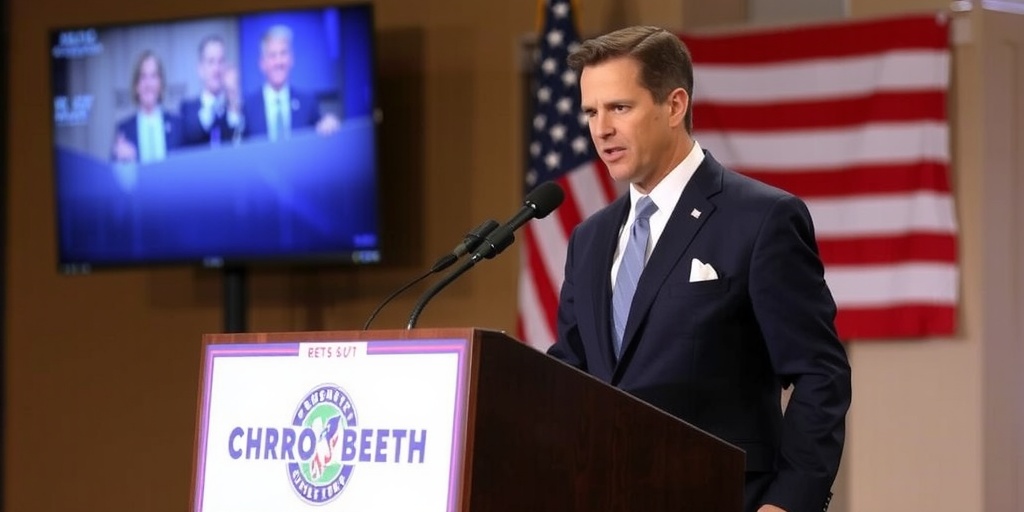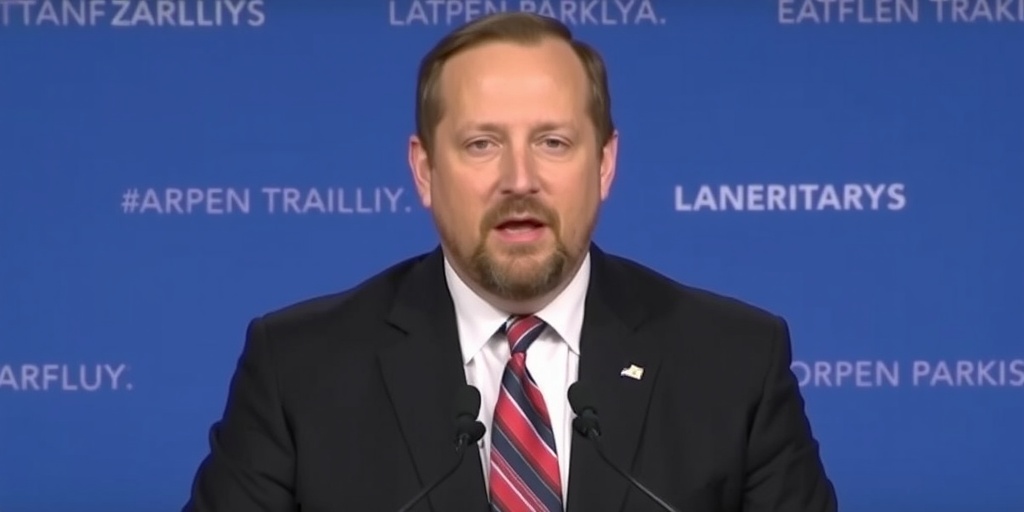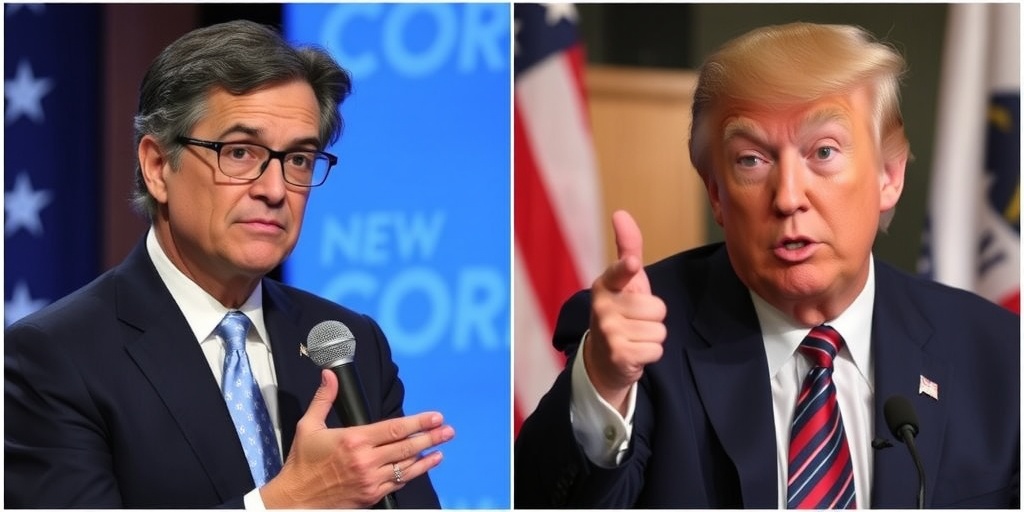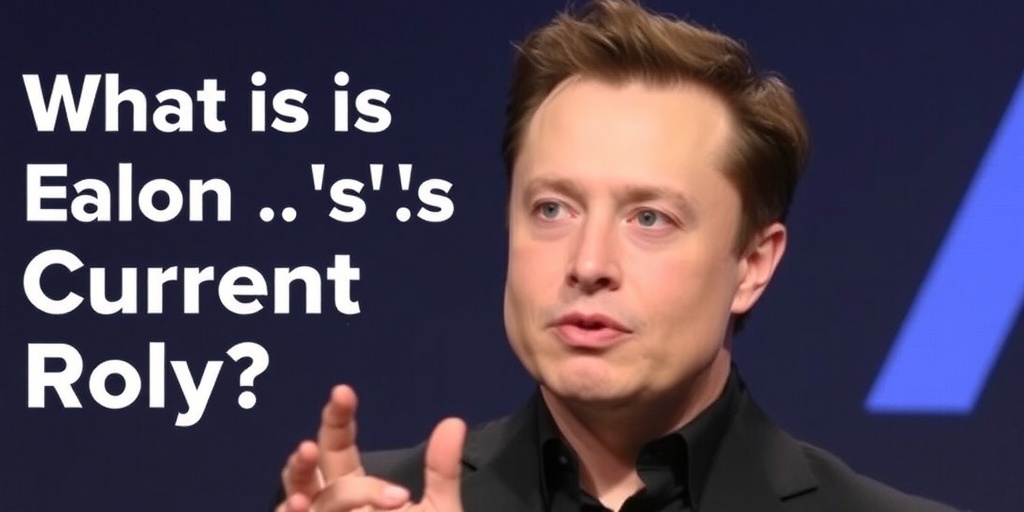Now Reading: Trump Backs House Budget Plan, Rejects Senate G.O.P.
-
01
Trump Backs House Budget Plan, Rejects Senate G.O.P.
Trump Backs House Budget Plan, Rejects Senate G.O.P.
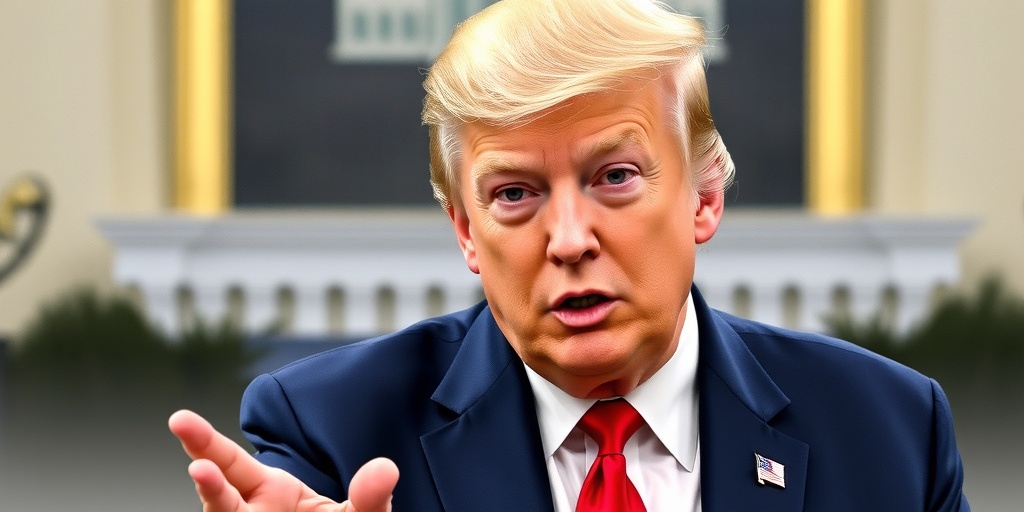
Trump Endorses Comprehensive Budget Proposal Amidst Congressional Disagreement
Former President Donald Trump has thrown his weight behind a proposal from House Republicans to advance a singular, extensive policy and tax cut plan. This endorsement comes as Senate Republicans observe a different approach, contemplating breaking down the legislative agenda into smaller, manageable components. Trump’s advocacy for what he termed “one big beautiful bill” emphasizes his desire to fully implement his “America First Agenda,” insisting that it encompasses all facets of his vision, rather than just selective elements.
In a post on his social media platform, Truth Social, Trump articulated his stance: “We need both Chambers to pass the House Budget.” However, his remarks have intensified the ongoing debate on Capitol Hill regarding the best method to advance his comprehensive legislative wishes, which prominently feature not only enhanced border security measures but also significant tax reductions.
Senate Republicans have signaled their intent to pursue a piecemeal strategy, starting with a border-enforcement bill. They express skepticism over the House Republicans’ ability to reconcile their internal conflicts to produce a cohesive budget proposal. Senator John Thune from South Dakota, the Senate Minority Leader, acknowledged Trump’s preference for an all-encompassing bill while underscoring that the Senate is prepared to work collaboratively, provided the House can unite behind one proposal.
Complicating matters further, Trump’s simultaneous directives regarding the potential cuts to social safety net programs have left many confused. On a recent Fox News segment, he vehemently opposed any reductions to Medicaid—an essential health care program supporting low-income Americans—and other entitlement services, asserting, “Social Security won’t be touched, other than this fraud or something we’re going to find.” He posited that while Medicaid would not be diminished, any potential reform should focus on eliminating fraud.
However, less than 24 hours later, Trump was seen endorsing House Republicans’ budget, which notably includes deep cuts to Medicaid. This apparent contradiction has only underscored the complexities surrounding the federal budget process and has left some observers concerned about the emerging chaos that lies ahead.
Maya MacGuineas, the president of the bipartisan Committee for a Responsible Federal Budget, pointed out the challenges legislators face amidst calls for fiscal responsibility while simultaneously attempting to extend Trump’s proposed $4 trillion in tax cuts without exacerbating the nation’s soaring debt, now at a staggering $36 trillion. She remarked that achieving a balance between reducing expenditures and raising revenue presents a precarious challenge and cautioned against the short-sighted decisions contributing to the ever-growing deficit.
House Republicans have begun eyeing various strategies to streamline spending, with particular emphasis on Medicaid revisions. These changes could limit federal contributions to states, aiming to generate substantial savings. Meanwhile, Democrats have seized upon the opportunity to draw public attention to the proposal’s potential cuts to Medicaid—strategies that polls indicate may be politically unpalatable. Senator Peter Welch, a Democrat from Vermont, stated, “The math doesn’t add up and the only way he’s going to be able to do it is to go after Medicaid,” labeling the budgetary agenda as “appalling.”
While the House budget plan outlines broad spending goals for various committees without specifying cuts, it directs the Energy and Commerce Committee—responsible for Medicaid oversight—to identify at least $880 billion in reductions. A wish list released by the House Budget Committee suggests multiple reform options aimed at altering Medicaid’s structure, which provides care to approximately 72 million low-income and disabled Americans.
Historically, Trump has been known for his inconsistent positions on various policy matters, including social issues and taxation. Nonetheless, the current debate surrounding potential Medicaid reforms becomes intricately nuanced, as any adjustments risk alienating a significant portion of the electorate reliant on the program.
Speaker of the House Mike Johnson has shown support for implementing work requirements as a means to enhance Medicaid efficiency while combating waste. He maintains that this perspective aligns with Trump’s views. “Medicaid has never been on the chopping block,” Johnson insisted, advocating for measures that eliminate fraud and abuse within the program as a means to reallocate funds for higher-priority issues.
As the budget discussions continue to unfold, the delicate balance between fiscal conservatism and the protection of essential services will remain a pivotal point of contention within the Republican Party and among the broader congressional landscape. With negotiations ramping up, it will be crucial for both chambers to navigate these turbulent political waters effectively to realize any semblance of legislative success.
Stay Informed With the Latest & Most Important News
Previous Post
Next Post
-
 01New technology breakthrough has everyone talking right now
01New technology breakthrough has everyone talking right now -
 02Unbelievable life hack everyone needs to try today
02Unbelievable life hack everyone needs to try today -
 03Fascinating discovery found buried deep beneath the ocean
03Fascinating discovery found buried deep beneath the ocean -
 04Man invents genius device that solves everyday problems
04Man invents genius device that solves everyday problems -
 05Shocking discovery that changes what we know forever
05Shocking discovery that changes what we know forever -
 06Internet goes wild over celebrity’s unexpected fashion choice
06Internet goes wild over celebrity’s unexpected fashion choice -
 07Rare animal sighting stuns scientists and wildlife lovers
07Rare animal sighting stuns scientists and wildlife lovers













